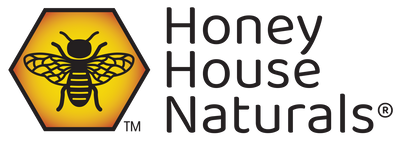Bee Smart - Know better, do better
Oh, my goodness! There is so much information about bees; it would take years of study and experience to learn it all! They are fascinating creatures and humble besides, when you consider that our own survival depends on the ancient and eternal work that they do.
Celebrate World Bee Day
*Bee inspired by nature to nourish us all*
https://www.un.org/en/observances/bee-day
Create a buzz 📢, Sip life’s sweet moments 🍯, Mind your own beeswax, Work together 💪, Always find you way home 🏡, Stick close to your honey, Bee Yourself!
@honeyhousenaturals #worldbeeday #honeyblossomsoap #beebar #beemanly
Crank up the 🎵music🎵, the bees are dancing! Bees use a special dance, called waggle, to let each other know lots of things such as where a good source of food is, where a good nest location might be and many other things.
Bee History
For a great history lesson on bees, we found an article in the New York Times that is truly interesting and can be read in one sitting. Click here to go to the article. Although there are over 4,000 species of bees native to North America, and they are all at work pollinating our crops and flowers, we tend to value the honey bee the most. We love everything about them, from the endless varieties of honey they produce, to the wax, to the propolis and bee pollen that are all so good for us. Their hives are a study in geometric precision that borders on miraculous! The social structure of the beehive is fascinating. (We all know a Queen Bee, don’t we?)
Although there are over 4,000 species of bees native to North America, and they are all at work pollinating our crops and flowers, we tend to value the honey bee the most. We love everything about them, from the endless varieties of honey they produce, to the wax, to the propolis and bee pollen that are all so good for us. Their hives are a study in geometric precision that borders on miraculous! The social structure of the beehive is fascinating. (We all know a Queen Bee, don’t we?)
For farmers, the best thing about the honey bee is that they are so compact and portable. When they need their fruit trees pollinated, they just rent some hives from their local apiary and then hand them back at the end of the season!
A lot of other bees nest solitarily in the ground or the bark of trees, so although they do their job, they cannot be gathered and moved from place to place, so pollination by those bees is only guesswork. There are three kinds of bees within the social structure of the hive. The Queen Bee is exactly that. She is the center of the organization and all activities are dedicated to her survival. She is constantly fed Royal Jelly so she has the strength to lay eggs. She can lay as much as a quarter of a million eggs in one season! The drone is needed to fertilize the Queen Bee. When he is done, he dies. The worker bees are all female. Their jobs vary depending on their age. You can read all about it here.
There are three kinds of bees within the social structure of the hive. The Queen Bee is exactly that. She is the center of the organization and all activities are dedicated to her survival. She is constantly fed Royal Jelly so she has the strength to lay eggs. She can lay as much as a quarter of a million eggs in one season! The drone is needed to fertilize the Queen Bee. When he is done, he dies. The worker bees are all female. Their jobs vary depending on their age. You can read all about it here.
Colony Collapse Disorder (CDC)
The disappearance of the honey bees has been a major concern for the last decade. The latest research has determined that it is caused by a mixture of different factors which are: exposure to pesticides, different viruses and deadly mites, as well as lack of food.
For an in-depth study, you can go to the USDA site.
In 2007, PBS aired a program called Silence of the Bees. It was both informative and moving. You can find the video of that program here.
 What Can You Do?
What Can You Do?
You can’t do much about the viruses and mites, but the easiest thing you can do is to FEED the BEES!
Plant flowers that bees love! Lavender, Catmint, Sage, Cilantro, Thyme, Fennel, Borage, Crocus, Buttercup, Aster, Hollyhocks, Anemone, Snowdrops, Geranium, Calendula, Sweet Alyssum, Poppy, Sunflower, Zinnia, Cleome and Heliotrope I found this lovely poster on Pinterest. You can purchase it by going to this site.
Varieties of lavender can be grown almost anywhere - in your garden or in a container. You can go to this link for Gardening tips to help get started or to expand your knowledge of growing your bee-friendly garden!
Another thing you can do is limit your use of pesticides, primarily Neonicotinoids. You can find a list of Pesticides that carry neonicotinoids here.
We love our bees and hope you will do all you can to keep them happy on this planet!


